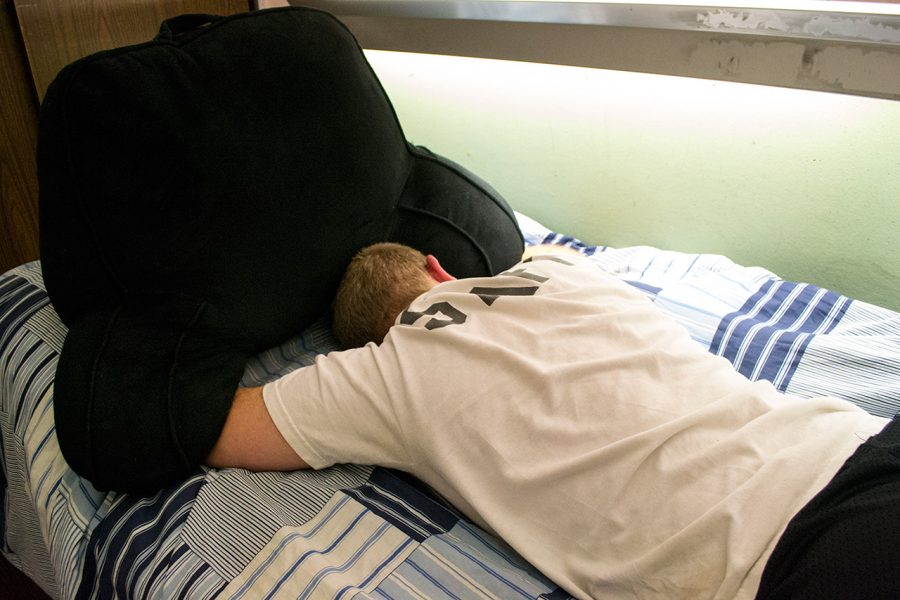Pushed to the edge
September 27, 2012
Surgeon general Regina Benjamin announced a plan to implement an updated national strategy for suicide prevention last week.
This strategy is a call to action that is intended to guide suicide prevention actions over the United States over the next decade, according to the Substance Abuse and Mental Health Services Administration (SAMHSA).
According to SAMHSA, suicide is the 10th leading cause of death, claiming more than twice as many lives each year as homicide.
After UNA’s police receive the call of an attempted suicide, they refer the student to UNA’s Campus Assistance and Referral Evaluation (CARE) team, said UNA Police Chief Bob Pastula.
The CARE team was created in response to growing concerns and increased awareness on college campuses regarding students’ emotional well-being and safety, according to UNA’s website.
Students can be referred to the CARE team in several different ways: UNA police, faculty, staff, parents and self-referrals, said Vice President David Shields.
“Once (a student is) referred, certain members of the CARE team talk to the student depending on how the student was referred,” Shields said.
The student is then required to sign a treatment compliance agreement based on the issue of care.
“The agreement is not a punishment but designed to be helpful,” he said. “I don’t want to scare students—I want to encourage them.”
The agreement can include anything from requiring students to attend class to seeing a counselor at Counseling Services on campus, he said.
The student may also be asked to sign a waiver to divulge medical information if the CARE team sees it as an important detail, he said.
However, if any counselor feels the information provided by a student in a private session is immediately harmful, they will inform the CARE team, he said.
Some UNA students have dealt with suicide attempts in the past alone.
“That is one of those things, especially in the South, that is really hush-hush,” said Genna Bradley, a UNA student. “I assume everyone has thought about it at some point. I’ve self-medicated in the past. It was a half-hearted attempt, but I made myself ill.”
She said she thinks some people may be afraid to seek help for suicidal thoughts because of a strong stigma attached to suicide in the ‘Bible Belt’.”
“It took a long time to realize I wasn’t a freak for thinking those thoughts; we all have had those days where we just do not want to get out of bed and deal with life,” she said. “You want to duck out of reality for awhile.”
She said she felt comfortable enough to seek help in the future at UNA.
“I think we have a great faculty and staff here that would be open to talk to students,” she said.
Some students feel UNA communicates their resources for helping students effectively.
“I do think UNA is good about getting that information out there,” said Grace Oaks, a UNA student.
Aside from Counseling Services, the CARE team and campus police, students can seek help at the Center of Women’s Studies.
“I think if I knew someone going through that, I would tell them to go to the Women’s Center,” said Jasmine Redus, a UNA student.
UPC will be hosting a Suicide Prevention Day Oct. 8, where students will participate in an awareness walk followed by a speaker. There will also be a PostSecret event in the GUC from 10 a.m. to 2 p.m. where students are encouraged to write their secrets on an anonymous post card and submit it to be displayed.
For more information about suicide prevention, contact the Division of Student Affairs at 256-765-4223.












